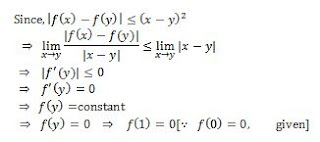As per analysis for previous years, it has been observed that students preparing for JEE MAINS find Mathematics out of all the sections to be complex to handle and the majority of them are not able to comprehend the reason behind it. This problem arises especially because these aspirants appearing for the examination are more inclined to have a keen interest in Mathematics due to their ENGINEERING background.
Furthermore, sections such as Mathematics are dominantly based on theories, laws, numerical in comparison to a section of Engineering which is more of fact-based, Physics, and includes substantial explanations. By using the table given below, you easily and directly access to the topics and respective links of MCQs. Moreover, to make learning smooth and efficient, all the questions come with their supportive solutions to make utilization of time even more productive. Students will be covered for all their studies as the topics are available from basics to even the most advanced.
.
Q1. Let f is a real-valued differentiable function satisfying |f(x)-f(y) |≤(x-y)2,x,y ∈R and f(0)=0, then f(1) equals
Q4. The set of points where the function f(x)=|x-1| ex is differentiable, is
Solution
Since, |x-1| is not differentiable at x=1
Since, |x-1| is not differentiable at x=1
So, f(x)=|x-1| ex is not differentiable at x=1
Hence, the required set is R-{1}
Q5. If f(x) is continuous function and g(x) be discontinuous, then
Solution
If possible, let f(x)+g(x) be continuous. Then, {f(x)+g(x)}-f(x) must be continuous ⇒g(x) must be continuous
If possible, let f(x)+g(x) be continuous. Then, {f(x)+g(x)}-f(x) must be continuous ⇒g(x) must be continuous
This is a contradiction to the given fact that g(x) is discontinuous
Hence, f(x)+g(x) must be discontinuous
Q7. The following functions are differentiable on (-1,2)
Solution
Since the functions (logt)2 and sint/t are not defined on (-1,2). Therefore, the functions in options (a) and (b) are not defined on (-1,2)
Since the functions (logt)2 and sint/t are not defined on (-1,2). Therefore, the functions in options (a) and (b) are not defined on (-1,2)
The function g(t)=(1-t+t2)/(1+t+t2 ) is continuous on (-1,2) and
f(x)=∫0x(1-t+t2)/(1+t+t2) dt is the integral function of g(t)
Therefore, f(x) is differentiable on (-1,2) such that f' (x)=g(x)
Q8. Let f(x) be defined for all x>0 and be continuous. Let f(x) satisfy f(x/y)=f(x)-f(y) for all x,y and f(e)=1. Then,
Solution
We have,
We have,
log(x/y)=logx-logy and log(e)=1
∴f(x)=logx
Clearly, f(x) is unbounded because f(x)→-∞ as x→0 and f(x)→+∞ as x→∞
We have,
f(1/x)=log(1/x)=-logx


















